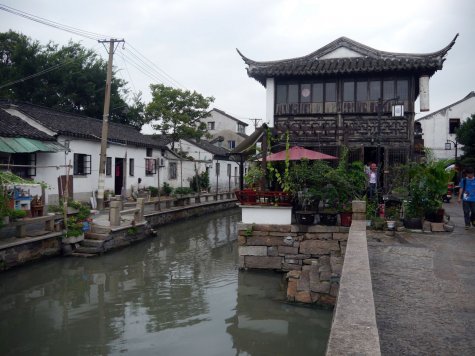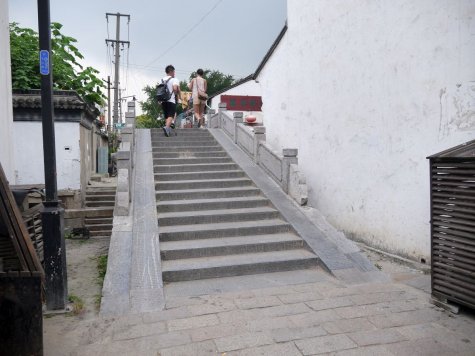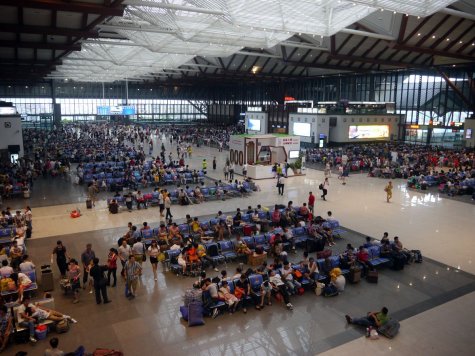With Jinji Lake a destination sight, we rode the not-very-busy subway at rush hour through the city centre to the east side at Dongfang Zhimen (Gate of the Orient) station. The building outside that subway stop looked to be a concert hall with no performances that day.
Jinji (Golden Rooster) Lake is manmade. Knowing that, the concrete shore is less surprising.
After dinner, we walked along the shore in the dark. Vendors featured lit-up toys.
Looking westward, the higher buildings in central Suzhou were prominent.
The Dongfang Zhimen skyscraper over the subway station is two towers joined at the top. It was nearing completion in summer 2013.
We rode the subway back west towards the city centre, getting off at the Leqiao Station. The main shopping streets are a few blocks north.
On the way, there were street vendors selling fruit, shells, and assorted knick-knacks.
Passing some construction, we eventually found Guanqian Street. It’s known to be one of the grand shopping streets in China. DY and I decided to return to the hotel, and left the younger of our group to find the temple closed for the evening.
With little time for sightseeing late the next morning, we rode in two cabs over to Pingjiang Street. The canal dates back to the Song Dynasty (960-1279), with homes on one side of the canal and shops on the other.
The flagstone street invites strolling. Coconut shakes were a welcome treat.
We crossed over a bridge to the residential side of the canal, but there wasn’t much to see.
From the bridge, however, the canal was scenic. We opted to not have lunch in the teahouse. We had to stop under some eaves as rain started and then stopped.
With a 5 p.m. departure scheduled, we walked to a nearby hotel where the bellman called taxis for us. After a stop back on the west side to pick up luggage, we looped back east to the Suzhou Railway Station in the city centre.
[See the album of 34 Suzhou webphotos (with a slideshow option)]
If we’re back in China with more time on a trip in the future, perhaps we’ll plan more time in Suzhou. It’s not a big city like Beijing or Shanghai, and it’s known for its classical gardens. A more relaxed pace — not to mention clear weather — would suit a more leisurely visit.
[Start a large-image lightbox screen show over this blog post (in a supported browser)]
















